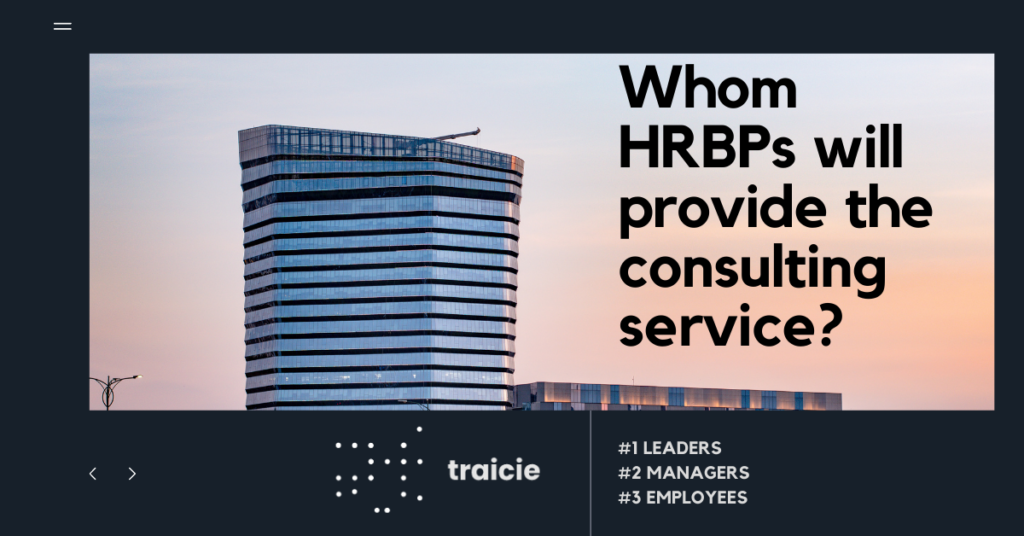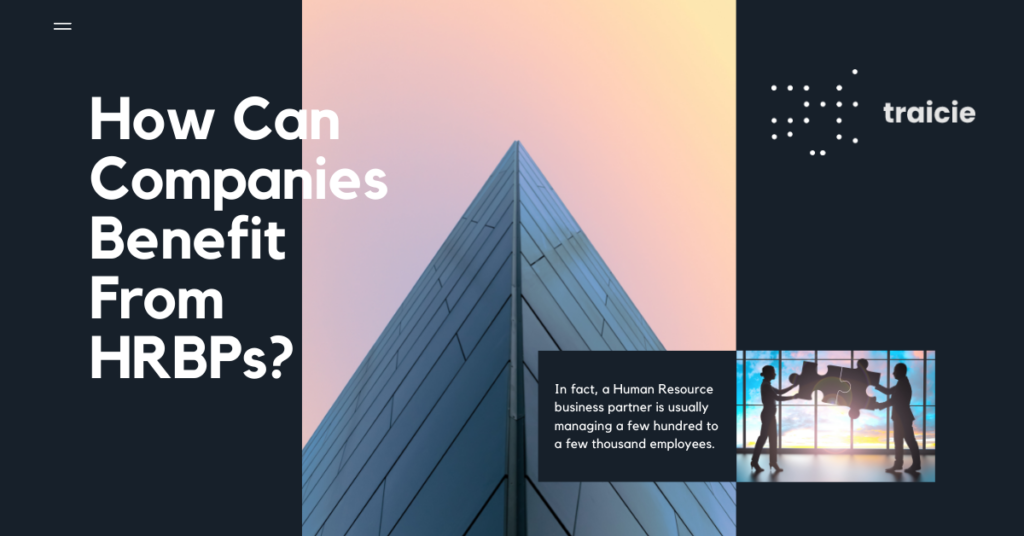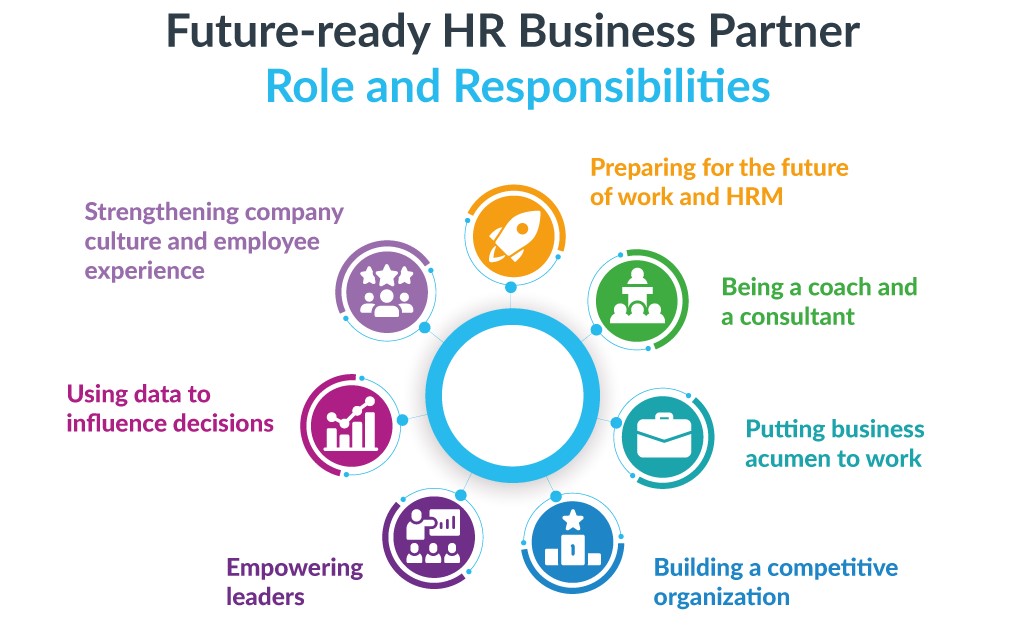The HR Business Partner or HRBP position in the human resources department has recently been more and more popular among a great number of organizations in the 21st century with the rise of digital technology and sudden changes. This article provides a great deal of information not only about what an HRBP stands for and who they partner with the most, but also the core competencies of an HR business partner with role and responsibilities and how to apply a successful HRBP models for your company.
What is an HR Business Partner?
First, it is important to fully understand the term HR business partner as a consultant who works in human resources, building relationships and providing resources in departments throughout the organization.
An HR Business Partner, also known as HRBP, is a human resource expert working closely with an organization’s senior management team to create and supervise the HR agenda that mainly supports organizational goals. To be more specific, HR business partners are the specialists who got a seat at the table with the organizations’ executive leads and department heads to make sure that their ‘people strategy’ are well aligned with their ‘business strategy’. HR business partners possess high expertise and a deep understanding of how to make the business more successful.
Because the HRBP is placed in close contact with the senior leadership team, directors expect human resources professionals to be trusted advisors give them concrete direction and solid advice. In that way, HRBP’s are required to attain an excellent understanding of the organization, its strategy and customers. Also a very good knowledge of the workforce challenges is crucial.
When HR is fairly involved in the company’s relevant business strategy, it is foreseen that one of the biggest tasks of HRBP is to maximize employees’ performance in service of the organization’s strategic objectives.In many organizations, The HR Business Partner belongs to the HR Front Office employee, working as the intermediary party for internal and external clients of Human Resources. HR Business Partner understands the business of the internal management team and represents the interests of the business team in Human Resources.
Who an HRBP provides consulting service for/partner with?
You may wonder for whom HRBPs provide consulting services. Leaders, managers, and employees are believed to often seek counseling advice from HRBP.
#1 LEADERS:
Let’s start with the leader group. It is a well-known fact that HRBP sets direction and assigns priority to talent initiatives. However, before a HRBP wants to apply any initiatives to the broader organization, he or she needs to solicit input and approval from leaders. Moreover, HRBPs also do personal coaching for leaders, assisting them to boost their performance or behaviors by providing specific guidance and advice.

#2 MANAGERS:
Next, managers who are responsible for executing the talent vision set forth by the leadership team will need the help of HRBPs. An HRBP is there to assist line managers to understand that vision and to provide support and guidance during the execution phase. It’s critical that an HRBP develop relationships with the management team so an HRBP can easily provide guidance and enable exceptional experiences for their employees. If you were an HRBP, you would be executive management’s direct point of contact for anything to do with planning and meeting HR requirements. You would work with acute management accounting tools and reliable data to support the management team in making important decisions such as the number of new employees that will need to be recruited and which skillset is missing within the group to compete against the rival companies.
#3 EMPLOYEES:
The third party that an HRBP needs to interact with, at work is employees within the organization. Although HRBP may not typically interact with employees on a daily basis, it is important that an HRBP be there and ensure that this employee group is being well nurtured. Occasionally, an employee may reach out to an HRBP with complex questions and concerns.
Do you wonder how traicie recruitment sourcing tools can help HRBP in strategic operational value in human resource management?
Why an HRBP is vital for the organization?
According to recent studies, it is essential for a company with a large workforce to hire an HR business partner. In fact, a Human Resource business partner is usually managing a few hundred to a few thousand employees. Having a large workforce, the organizations face a major risk that serious inefficiencies may possibly be getting into the workplace and negatively affecting the business results.
For instance, the company may have too few staff working in the logistic department during the peak season, hence, it then takes longer for seasonal, highly demanded products to reach the retailers and conclusively causing lower sales.
| >>> You might also wonder: How to become a HRBP – Human Resources Business Partner?
An HR business partner, in this case, will need to step in, working with the line managers to carry out a thorough investigation of the current workforce, identify inefficiencies, and give the good counsel to hire more seasonal workers. The business will then be saved by the immediate solution of creating a productive workforce articulated by HRBP.

What does an HR business partner do?
It can be said that the roles of an HRBP may be different based on the size of the organization.
#1 Small and medium-sized enterprises (SMEs)
An HRBP may work more like an HR generalist, giving good counseling service in all people areas, and also handling several operational activities such as managing employee relations or policy issues.
#2 Multinational company (MNC)
On the other hand, in an organization with a huge workforce such as a multinational company, HRBPs shall be responsible for driving people strategies to be in line with the business strategies while working alongside teams of senior leadership and major stakeholders. An HRBP in a larger organization will be more devoted to aligning business objectives with employees and management, whereas being less involved with operational tasks.
| >>> You might also interested in: Recruitment funnel: what recruiting metrics, how to create?
Although HRBP tasks may vary depending on the size of the organization, basically, an HRBP is responsible for consulting, guiding, and influencing the talent decisions within the organization that the HRBP supports. For instance, much of HRBP activities include individual coaching, organization or job design, facilitating talent programs, and making connections to internal and external resources who specialize in areas like benefits, mobility, or learning.
HR business partner role and responsibilities
Please check out the most regular duties of effective HRBP functions:
| Rhythm with business vision | HRBP must work in close contact with the senior leaders and managers, to understand how the business is doing, give advice on which HR activities should be implemented to reach business objectives and provide value to the board of management in helping them reach the business goals from a people perspective. For example, if the most current business strategy is to boost the sales, the HRBP needs to assist the business to create a culture and people approach with the purpose of supporting this business goal. |
| Talent Planning | The HRBP will take on the big task of determining and steering the objectives of the human resources department of the organization, focusing more on developing strategy rather than implementing policy. Talent planning is one of the most important tasks of HRBPs in which they draft strategy structuring how a company plans for hiring, retaining and developing the current and future staff effectively. |
| Facilitating organizational change | When an enterprise goes through a major change in the component of its organization, such as its culture, and the underlying technologies, or infrastructure, an HRBP is there to support the big step. This role may be centered around boosting worker productivity, changing the compensation and benefits structure, or simply realigning the current workforce more efficiently. HRBPs can also advise the executive management team on what organizational structure types are well cut out for their business. |
| Supporting talent decision processes | HRBPs help businesses strategize, train, and adapt to recruit and retain the best talent in the market in the form of improving the HR hiring and training processes. The HRBP needs not only a deep understanding of people but also of business operations to build a competitive organization. |
| Training and empowering managers | An HRBP offers customized professional development and training classes for managers and employees. A great HRBP must assist business leaders to make their own decisions and tackle employee emergencies on their own. HR should be a backup for an emergency, not the first problem solver, and that starts with empowering leaders. Moreover, the HRBP also works together with the HR Center of Excellence to apply the most updated HR Processes to the organization. |
HRBPs with a strategic vision is expected to be able to find bottlenecks in human resource early on and run efficient, smooth recruiting and hiring processes to build a competitive workforce and empower the business performance of the organization.
How to implement successful HRBP Models in your Company?
In the HR business partner model, the human resource department participates in strategic planning to help the business meet present and future goals.
HR department aims not only to focus on current HR duties but also to add value to the company by overseeing recruiting training, advancement, and placement of new and current employees.
Dave Ulrich, who is the most influential thinker in HR of the decade, visualized the HRBP model in which he suggested four roles for HR to be a great business partner;
1. The strategic partner role
2. The change agent role
3. The employee champion role / Employee Advocate
4. The administrative expert role

Essential Skills of a Human Resources Business Partner
Four main features that an effective business partner usually acquires:
| Understanding the business model in depth | getting to know and understand how the business runs, how it creates value, its strategic drivers, and its purpose. |
| Generating insight from data and evidence | using and applying evidence to support business cases or strategies, as well as providing insight, inspiration, and the opportunity to validate and qualify the impact of their work. |
| Connecting with curiosity, purpose, and impact | asking the right questions, crafting networks, and understanding where HR can identify opportunities to create the most value. |
| Leading with integrity, consideration, and challenge | be brave and confident to challenge the business and its leaders. |
Differences between a HR business partner vs. HR advisor
According to BambooHR, an HR business partner and HR advisor are separate roles and represent two different models of conducting human resources services within an organization; however, some may find these two roles quite confusing. Let’s figure out the differences between an HRBP and an HR Advisor.
The HR advisor’s work usually centers around developing policies and enforcing procedures. This position is constantly advising and guiding stakeholders on the company policy and guiding cases in line with this and current legislation.
On the other hand, the HR business partner, on the other hand, does not take any administrative responsibilities over a department. Their primary function is to work with the company’s senior leadership team and with department managers to help guide and communicate the overall company strategy. HRBPs cooperate with the HR department while counseling the executive team on HR issues and initiatives. HRBPs may assist in developing HR initiatives and strategies that leave a huge impact on the whole organization.
HR Advisor with the role of guiding executive managers on the company policy and guiding cases to be in line with the law is considered more reactive than proactive compared to an HR Business Partner. HRBPs are partnering with the business, thinking strategically, and assessing the impact of HR policies on the business compared to being an HR Advisor where you follow best practices within policies and procedures. In short, an HR Advisor can be typically reactive, whereas an HR BP can be more proactive regarding the management of the company policies.
Do you know that traicie’s tools can help HRBP in strategic operational value in recruiting process for term of:
- Cost of a job board- Reduce annual spending on job boards
- Cost of HR’S tools – Reduce the cost of surveys and assessment tools.
- Recruitment costs – Reduce selection costs
- Internal mobility – Fill more skilled jobs with internal staff
- Time to hire – Reduce the number of days a role goes unfilled.
- Salary costs – Reduce overall salary costs
- Attrition – Reduce the rate of turnover
- Recruitment cost – Reduce the general recruitment cost
One thought on “HR Business Partner: Skills, Roles and Responsibilities”